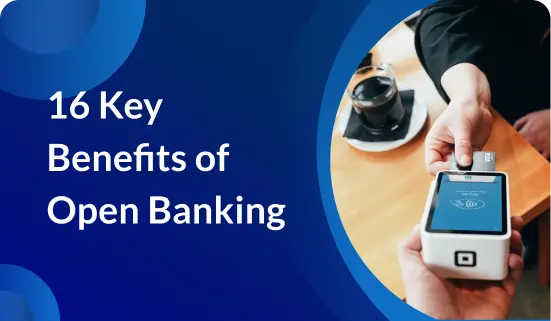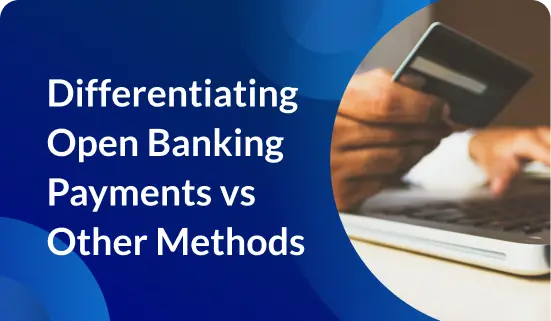The financial industry is undergoing a significant transformation, prominently through open banking. This innovation in financial services allows third-party developers to access consumer banking data via APIs. As a result, customers gain more control and a broader range of options regarding their financial information.
But, how does open banking affect financial services? Brankas, a leading provider of open banking solutions, is here to help you understand the benefits and possibilities of open banking. We’ll also explore the obstacles and strategies to overcome them.
How Does Open Banking Transform Financial Services?
Open banking significantly impacts the financial services industry in several transformative ways. It encourages a more dynamic financial ecosystem by fostering collaboration between traditional banks and innovative fintech companies.
Apart from that, here’s how open banking affects the financial sector:
-

Increased Competition and Innovation
Open banking breaks down barriers to entry for new players, allowing fintech companies and other non-traditional financial entities to offer competitive services that were traditionally the domain of banks. This fosters a more competitive environment, pushing both new entrants and established banks to innovate and improve their offerings.
-

Enhanced Customer Experience
By enabling third-party developers to create new applications and services using products like Brankas GoPay Data and Brankas Data API, it leads to more tailored financial products. Consumers benefit from personalized financial advice, budgeting tools, and investment options that meet their specific needs, often accessible from a single platform.
-

Improved Financial Transparency
Open banking in the financial industry provides consumers with greater access and control over their financial data. This transparency helps them to make better-informed financial decisions, manage their finances more effectively, and understand their financial health in real time.
-

Streamlined Processes
The integration capabilities of open banking allow for more seamless interactions between different financial systems. For businesses, this can mean more efficient operations, such as faster payment processing, improved billing services, and streamlined credit assessments.
-

Greater Financial Inclusion
Open banking can extend financial services to underbanked or unbanked populations by lowering the cost of providing services and creating new avenues for accessing financial products, which can help reduce financial inequality.
-

Enhanced Security
Although introducing new technology and data-sharing practices introduces potential risks, open banking also promotes the adoption of advanced security measures. Enhanced security protocols like strong customer authentication and secure financial data APIs are mandatory, helping to protect consumer data and reduce fraud.
-

Regulatory Compliance
Open banking is typically regulated by financial authorities, such as the Banko Sentral ng Pilipinas, to ensure privacy, data protection, and security standards are met. This regulatory oversight helps build trust among consumers and ensures that financial institutions and third-party providers adhere to strict guidelines.
Potential Challenges of Open Banking in the Financial Industry
Open banking presents numerous opportunities for innovation and improved customer service in the financial industry, but it also comes with significant challenges:
-

Security Concerns
One of the most pressing challenges facing the financial services industry with open banking is the increased risk of cybersecurity threats. As financial data becomes more accessible through APIs, there is a heightened risk of data breaches and fraud. Financial institutions and third-party providers must implement robust security measures to protect sensitive customer information and ensure compliance with regulatory standards.
-

Technical Challenges
Integrating open banking solutions with existing IT infrastructure can be complex and resource-intensive. Financial institutions often face significant technical challenges in developing and maintaining APIs that are both secure and efficient. Additionally, ensuring interoperability between different banking systems and APIs can be difficult.
-

Consumer Trust
One of the benefits of open banking is financial data control. However, gaining and maintaining consumer trust is a major challenge for open banking. Customers may be hesitant to share their financial data with third-party providers due to privacy concerns and a lack of understanding of how their data will be used. Educating consumers about the benefits and safety measures of open banking is crucial to its adoption.
-

Market Readiness and Adoption
The uneven readiness and willingness to adopt open banking across different markets in the financial industry pose another risk. Both consumers and financial institutions may be resistant to change due to the comfort of existing banking methods and systems. To overcome this challenge, financial institutions could develop phased implementation plans that gradually introduce open banking, allowing users to adapt progressively.
-

Data Management and Quality
Effective data management is crucial in open banking. Poor data quality or ineffective data handling can lead to inaccurate customer insights, impacting the quality of services offered. Ensuring that data is accurate, consistent, and securely managed is vital for the success of open banking. To address this, businesses can invest in advanced data management and analytics technologies that ensure data processing, real-time data monitoring, and automated systems for data correction.
Leverage Open Banking in the Financial Industry with Brankas
Open banking is transforming the financial services industry in the Philippines. How will they do so? By enhancing competition, improving customer experiences, and increasing financial transparency and inclusion. It facilitates a more dynamic financial ecosystem that not only fosters innovation and streamlines processes but also enhances security and meets rigorous compliance standards.
However, it presents challenges such as cybersecurity, technical integration, and consumer trust that need addressing. Embrace the future of finance with open banking solutions from Brankas to navigate these challenges effectively and leverage the opportunities it offers for a smarter, more inclusive financial environment.









